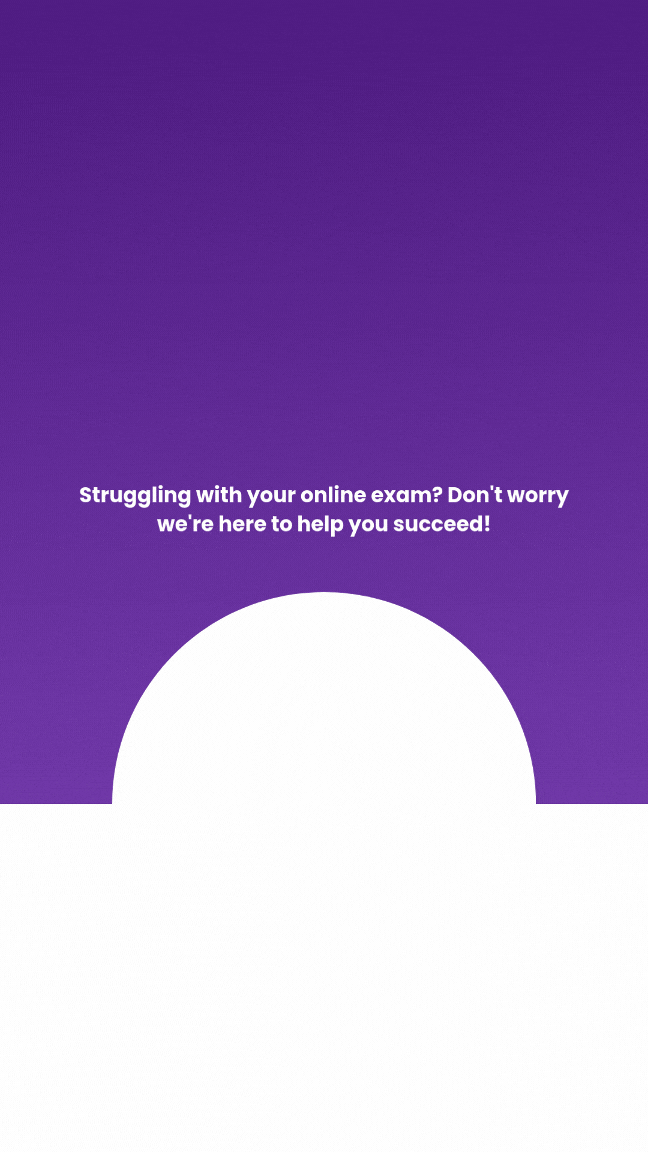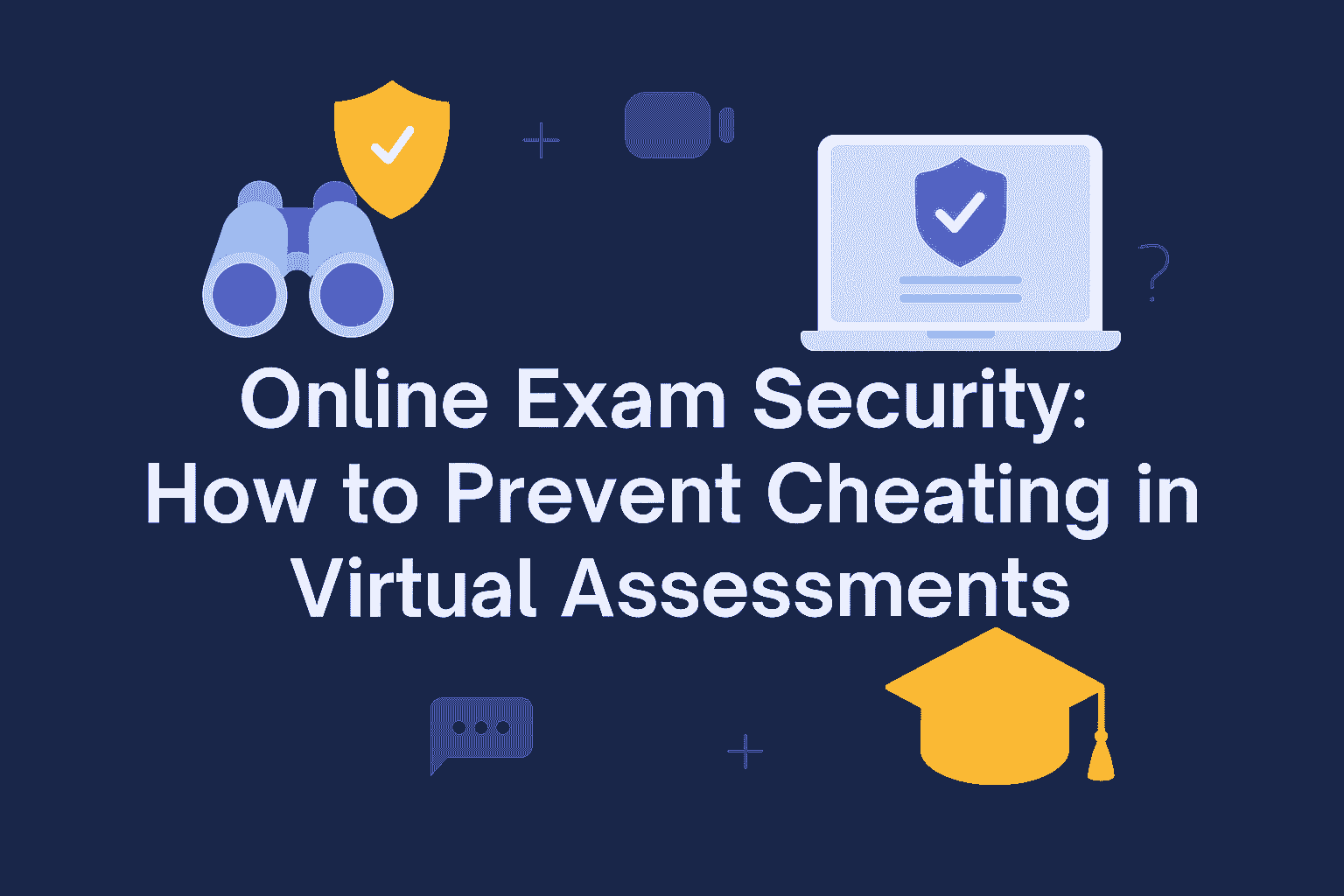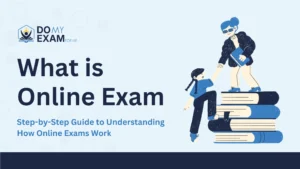Online exam security has become essential as digital learning continues to grow. The academic integrity needs to be maintained in institutions in a way that does not burden students with unreasonable pressure. As opposed to real classrooms, virtual test rooms are not subject to strict supervision, and this opens up new possibilities of dishonesty. The increase in remote testing requires more intelligent solutions that can safeguard fairness and honour the privacy of students.
Some learners might wonder if someone could do my exam for me, while educators worry about misconduct. This conflict indicates the necessity of a balanced approach that is needed. This can be achieved by implementing powerful technology, well-planned assessment design, and by giving clear ethical instructions to schools that will help them minimize the risks of cheating. This blog post provides useful strategies, effective techniques, and humane approaches that maintain the credibility of online testing without derailing the experience of the students.
Why Online Proctors are More Vulnerable to Insecurity
Virtual evaluation is unrestrictive yet susceptible. Students are asked to administer tests at their homes, where they have limited restrictions on resources, and they are largely unmonitored. Poor authentication mechanisms and laxity on the part of invigilators present loopholes through which the dishonest can take advantage.
The main weaknesses are:
- Unverified identity -only logins are not enough to identify the real test-taker.
- No limitations on resources to be used (students are allowed to use notes, phones, or other devices).
- Uncontrolled settings -home settings permit assistants to be identified and approached by friends or family.
- Minimal Control- web cameras will not stop every unscrupulous activity
These problems necessitate the need to take robust security measures in the initial stages. Unless it is solved proactively, academic performance may not actually indicate the performance of students.
Using Technology to Strengthen Online Exam Security
Technology provides powerful tools to prevent cheating in online exams. In modern systems, the suspicious activity is monitored and identity verified, and unfair digital platforms are blocked. When these measures are applied with a lot of care, they enhance fairness without being overwhelming to students.
There are good solutions, such as:
- Such Lockdown browsers do not allow free movement and enable the blocking of external applications.
- Eye or head tracking systems that look out for abnormal eye or head motions.
- The authentication through two factors to process the identification of the student repeatedly.
- Live activity monitoring to indicate suspicious answer patterns.
Incorporating these functionalities into evaluation platforms will make monitoring real-time. This will decrease the risk of misbehavior and preserve the integrity of the exam.
The role of Human Oversight
Monitoring is enhanced by software, but cannot be done without human presence. Teachers and administrators provide oversight, instructions, and clarifications. This assists students by making them know the rules, thus reducing anxiety.
When learners feel supported, they are less tempted to search for shortcuts like asking someone to take my online exam for me. Trial runs with systematic orientation sessions, explanation of the rules, and sample tests make the students feel at ease with the platform before the examination day.
Remote Proctoring Tips for Educators and Institutions
Proctoring tools may be effective in a fair application. The instructors should be diligent in monitoring how their students perform, but not too much so as to invade their privacy. These remote proctoring tips help maintain control while ensuring a positive experience:
- Give clear guidelines in advance so the students are given a heads-up.
- Take mock tests to deal with the technical problems in advance.
- Create fast ways of communication and troubleshooting during exams.
- Adjust to various needs so that all learners can have access.
The transparency of monitoring, along with structuring, helps to develop trusting relationships between students and instructors.
Assessment that can Deter Cheating
Effective control is also augmented by the way exams are set. Test design can contend with dishonesty by ensuring that dishonest scoring patterns will perform less effectively. Provoking the thinking process, relatively short, randomized questions, and questions based on applications promote comprehension, rather than memorization.
When exams focus on analysis and problem-solving, it becomes harder for someone to take my test for me and deliver accurate results.
Tactics of safe evaluation:
- Scramble questions to make each test different
- Combine different types of tasks, like an essay, multiple-choice, and scenarios.
- Short time limits are given to reduce the search for answers.
- Measure higher-order ability as opposed to simple memory.
These methods diminish the temptation to cheat and reward the real study.
How to Create a Culture of Academic Integrity
Integrity can only be addressed by security systems. Institutions need to develop a certain ethical culture in which honesty becomes important. Students should realize that cheating devalues their learning process and their potential in the future.
Integrity promotion ways:
- Offer honour code programs as to why fairness is important
- Discuss the implications of academic dishonesty in the real world.
- Offer mental well-being tools to decrease performance stress.
- Point out good, successful role models who have gotten to the top by the straight and narrow path.
When learners understand the importance of academic ethics, they are less likely to seek dishonest help, like someone to do my exam for me.
Balancing Privacy and Secure Online Testing
Academic standards are a big concern, but so is keeping to student privacy. Being overly watched may be intrusive and destructive to trust. Achieving balance means using secure online testing methods that monitor effectively without violating comfort.
The most important practices are:
- Be open as to why security must be taken
- Use less intrusive instruments that will nevertheless offer enough monitoring.
- Offer self-help materials in the area of decreasing stress before exams.
- Obtain feedback from students to improve practices.
Learners abide by security regulations when they are punctual and transparent. Benevolent supervision enhances integrity, without compromising well-being.
The Future of Online Exam Security
Online assessment will continue to be typical of digital learning. Advanced analytics and more sophisticated technologies such as biometric scanning, AI-enabled behaviour analysis, and more will be used to strengthen guarding. Nevertheless, technology itself will not help to make dishonesty disappear.
The education on integrity needs to be supplemented with innovative solutions by the institutions. Universal and flexible rules, mental support, and ethical training prepare the students to do their best properly instead of trying to find shortcuts.
Instructors should stay flexible; the security systems need to be adjusted to respond to the new type of misconduct. It is also the responsibility of students to engage in genuine participation, knowing that their future lives/careers are dependent on actual learning and not falsified attainments.
The Value of Effective Communication: Preparing Exams
It is a source of misunderstanding, and through misunderstanding comes unconscious misconduct. Before exam day, the students have to know the expectations. Institutions ought to give each requirement in straightforward language so that the learners are aware of what is permissible and what is not. A briefing, guides, or videos on pre-exam instructions prevent last-minute surprises. Clear rules will not tempt students into cheating. It also prevents anybody from inadvertently falling into breach of security guarantees.
How to develop Familiarity using Practice Tests
Drills decrease anxiety and logistics. When the student tests the system early on, he/she will feel confident and know how the platform works. These mock tests may be used by instructors to make sure that the security measures are operating correctly. The benefit of the students is that they can see what problems might be encountered during the actual exam. This stream of pro-activity makes people more prepared and less panicky.
Training the faculty to deal with online evaluation
Teachers must also be trained on how to handle online assessment materials. A lot of security functions need management to be effective. Monitors have to be educated on how to engage suspicious activity reports and approach them with poise. The resource guides and workshops can support faculty use of proctoring platforms without difficulty. Technical failures on high-stakes exams are avoided with proper training. It also means instructors can respond in a timely fashion in case anything goes wrong.
Lessening Pressure to Shun Falsehood
Lots of stress usually drives students to sub-optimal choices. Flexible deadlines, manageable workloads, and a trial to academic assistance lessen the load. Learners feel supported and will therefore concentrate on the real preparation, as opposed to taking shortcuts. Universities ought to provide counselling services, study facilities, and mentoring programs. Such student support services make students feel a sense of value and, therefore, less inclined to seek unfair assistance.
Conclusion
The transition to online learning offers the much-needed convenience, with significant integrity issues. Cheating would undermine the quality of educational certificates unless there are countermeasures put in place. To build and sustain trust, the institutions have to utilize dependable technology, sound evaluation design, and forward-prone instruction. Students learn well in fair, transparent, and supportive systems. Rather than turning to a crooked source of assistance, learners are able to concentrate on learning.
Innovations in the future will further enhance oversight, although human values will always be the largest part of any oversight. Instead of finding ways to avoid the rules, students should have the opportunity to develop. A combination of strong security, ethical awareness, and responsible preparation will ensure online exam security becomes both effective and student-friendly. Education makes responsible leaders of tomorrow by safeguarding the fairness of today.





